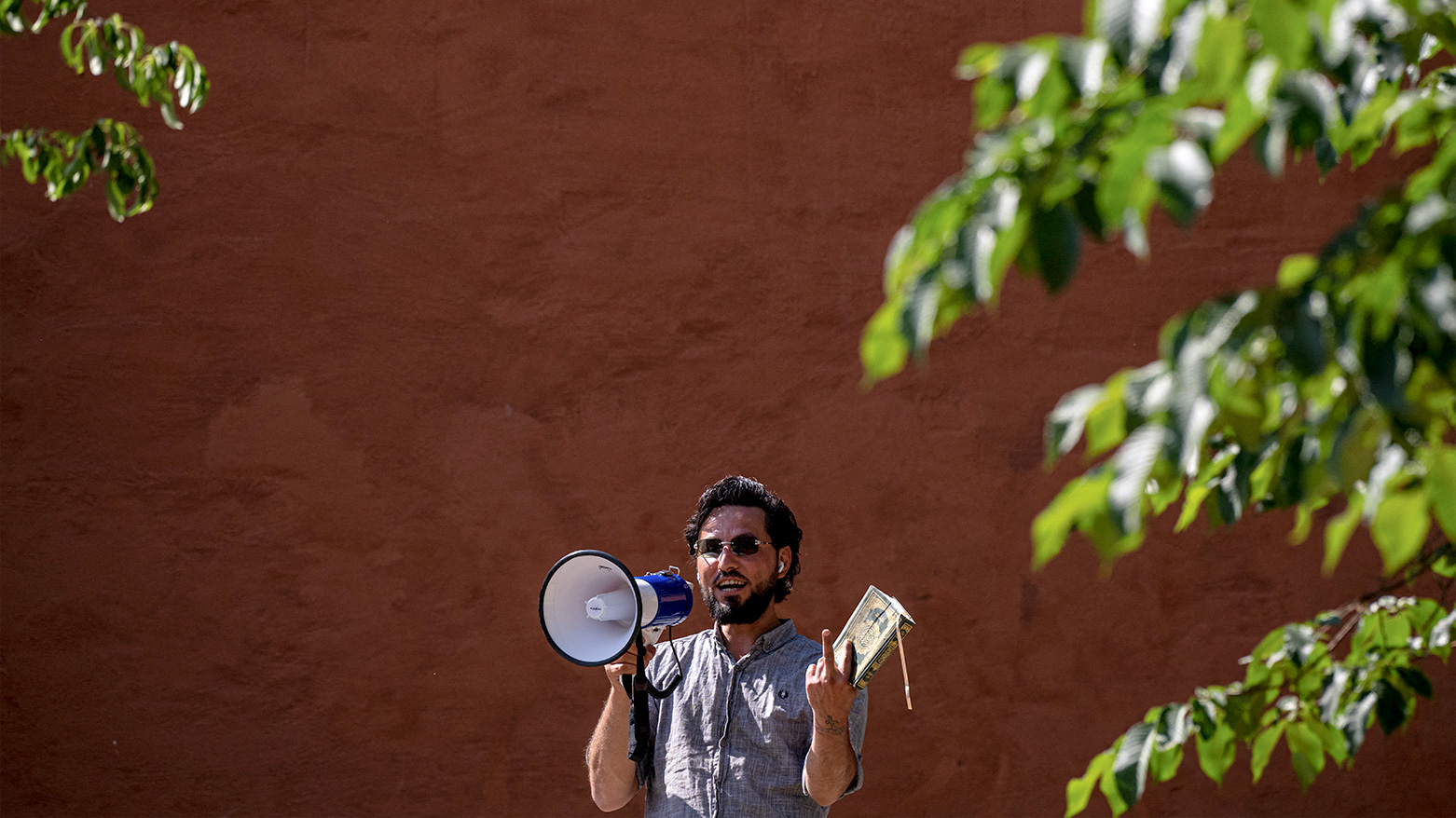Sweden Releases Five Suspects in the Killing of Iraqi Refugee Salwan Momika
Hours after Momika’s death, his associate Salwan Najm, who had accompanied him in previous controversial Quran-burning demonstrations, expressed fears for his own safety, posting on his personal X account: “Am I next?”

Jan. 31, 2025
ERBIL (Kurdistan 24) – Swedish authorities have released five individuals who were detained in connection with the killing of Iraqi refugee Salwan Momika, citing a lack of evidence against them, the Swedish Prosecution Authority announced on Friday.
Rasmus Öhman, the Swedish prosecutor handling the case, stated in a press release that there is no concrete evidence linking the five suspects to the crime, though investigations remain ongoing to uncover the full circumstances of Momika’s death.
Swedish authorities discovered Momika’s body in his Stockholm apartment on December 29, 2025, sparking widespread speculation about the nature of his death. Swedish Prime Minister Ulf Kristersson hinted at the possible involvement of a “foreign force”, underscoring the complexity of the case.
Hours after Momika’s death, his associate Salwan Najm, who had accompanied him in previous controversial Quran-burning demonstrations, expressed fears for his own safety, posting on his personal X account: “Am I next?”
Najm is currently facing charges in Sweden, including incitement against Muslims, further intensifying tensions surrounding the case.
Momika, originally from Iraq, gained international notoriety after burning a copy of the Quran in Stockholm in 2023, during the Islamic holiday of Eid al-Adha. His actions triggered global outrage, leading to violent protests in the Muslim world, including the storming and burning of the Swedish embassy in Baghdad.
The incident also led to a diplomatic crisis, forcing Sweden to withdraw its ambassador from Iraq and straining relations with several Muslim-majority nations.
Before seeking asylum in Sweden, Momika was a wanted man in Iraq. Iraqi authorities had previously requested his extradition, citing his involvement in founding the “Falcons of Syriac Forces”, an armed militia, and the “Syriac Democratic Union Party” in 2014 and 2017, during the rise of ISIS in the region.
While the case remains open, the release of the five suspects raises new questions about who was behind the killing and whether foreign elements played a role in his death.